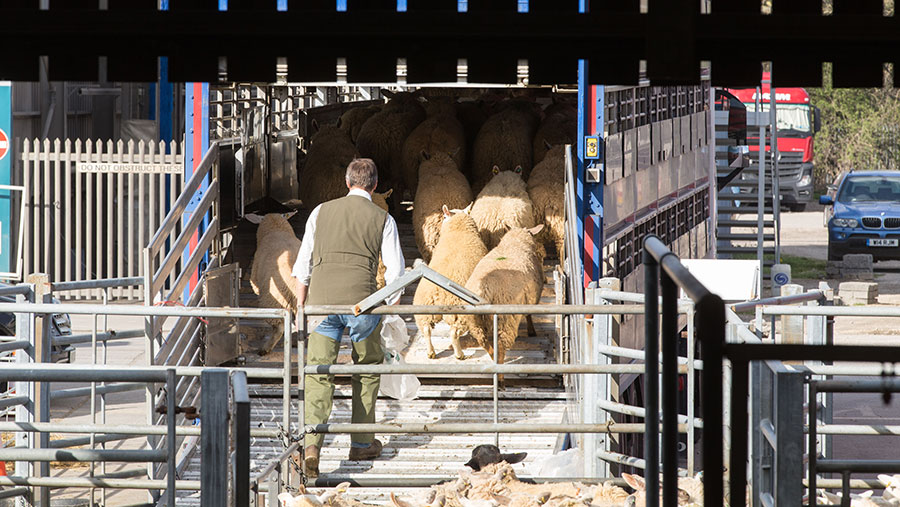Abattoir capacity fears as farmers face shorter journey times
 © Tim Scrivener
© Tim Scrivener An urgent review of capacity in the UK abattoir sector is being demanded amid fears that livestock farmers will struggle to meet new rules on travel times because of an absence of local slaughtering facilities.
Government policy has led to a steady decline in the network of small and medium-sized multi-species abattoirs, said the National Sheep Association (NSA).
Yet the government is now seeking to reduce livestock travel times from the current maximum of eight hours and ban live exports.
See also: Abattoir disputes: How to make your voice heard
Fines of up to £5,000 proposed for livestock welfare offences
Farmers who breach livestock health and welfare rules could be jailed for five years or fined up to £5,000 under new proposals.
The penalties are set out in a new Animals (Penalty Notices) Bill, a private members’ bill introduced by Andrew Rosindell MP, which is backed by the UK government.
This could mean that some regions may have insufficient slaughter capacity to meet need.
NSA chief executive Phil Stocker said the availability, capacity and location of abattoirs and slaughter facilities must be addressed.
“For years we have heard that the UK has ‘overcapacity in slaughtering’ and, in theory, this might be correct – but with increased stock to be slaughtered, pressure on journey times, and a shortage of available labour, there needs to be investment in options rather than just the application of restrictions,” he insisted.
Sufficient locally placed abattoirs are needed in livestock-rearing areas to cater for the live export ban, and attention given to how they operate to ensure they can provide the appropriate service, Mr Stocker added.
“Most farmers want to keep journeys to slaughter as short as possible, but there still needs to be choice and competition in order to maintain prices.”
According to latest figures, the UK now has just 250 registered abattoirs, compared with 30,000 in the 1930s.
Closures
One-third of small abattoirs have closed in the past 10 years alone, with only 62 now left.
This means livestock have to be transported for longer distances.
For some farmers in south-east England, the closest facility is in France, the NSA suggested.
Sussex sheep farmer Frank Langrish slaughters about 1,000 lambs a year at a small abattoir at Heathfield, but it only operates for a limited number of days each week and only slaughters sheep and cattle, not pigs.
He worries that the future is precarious for small abattoirs. Many that rely on migrant workers have struggled with staff shortages since the UK left the EU.
“Someone has to do an urgent review on existing abattoir capacity and what that looks like after the new transport rules kick in,” he said.
Mr Langrish supplies lamb to local butchers and uses an abattoir weekly.
“If that goes, the chances of doing any local supply will disappear,” he said.
